CBD Cream 1000mg



- thc-free thc-free
- Skin Skin
1000mg CBD Cream
-
Made for You
-
How It Works
-
Thoughtfully Crafted Formula
-
Lab-Tested for Quality & Potency
-
Perfect for Your Routine
-
The Joy Organics Guarantee
CBD Cream 1000mg
- Details
- Benefits
- Safety
- Ingredients
- Usage Tips

Excellent Customer Service

90-Day Guarantee

Carbon-Neutral Shipping
1000mg CBD Cream
-
Made for You
-
How It Works
-
Thoughtfully Crafted Formula
-
Lab-Tested for Quality & Potency
-
Perfect for Your Routine
-
The Joy Organics Guarantee
3.5 Million Products Sold
4.9
Based on 56 reviews
 Reviews Summary
Reviews Summary- read all reviews
- WRITE A REVIEW


Dr Langdon is one of the more than 1000 healthcare professionals who use and recommend our products.

Other Great Choices
Best selling solutions to improve your daily life
Frequently Asked Questions
What is CBD cream, and how does it work?
CBD cream is a topical product infused with broad spectrum CBD and hydrating ingredients, like shea butter, to support skin and body wellness. When applied, this topical CBD product interacts with receptors in the skin, muscles, and joints to support overall balance and post-activity recovery. The fast-absorbing formula makes it an easy addition to your daily routine, whether you're using it for skin nourishment or targeted support. Check out our topical CBD cream guide on our blog here!
How do I use CBD cream?
Apply a small amount of CBD cream to the desired area and massage into your skin until fully absorbed. You can use it in the morning, after workouts, or before bed—whenever it fits best into your routine. For optimal CBD use, apply after cleansing and before other topical products for a smooth, hydrated finish.
How often can I apply this cream?
As often as needed! Many people find that using CBD topicals 2–3 times a day works best, but you can adjust based on your needs. If you have sensitive skin, start with a small amount to see how your skin responds, or check with a healthcare professional if you’re unsure.
How long does it take to feel the effects?
Most users notice a difference after CBD topicals application within 10–20 minutes, but it can take up to two hours for full effects. With consistent use, this broad spectrum CBD cream can support your recovery routine and help you feel more at ease over time.
Will this cream make me feel high?
No. This cream contains broad spectrum CBD hemp oil (not full spectrum hemp extract), which uses the entourage effect to enhance the effectiveness of this topical CBD product.
How does CBD cream compare to CBD oil?
Topical CBD cream is applied to the skin for targeted support, while CBD oil is taken orally for full-body balance. If you’re looking for external care for specific areas, a CBD cream is a great choice. If you want overall wellness support, CBD oil or other broad spectrum CBD products may be better suited for you.
Can I use this cream with other skincare products?
Yes! This unscented, lightweight hemp cream formula pairs well with other skincare products, including essential oils and other compounds like lavender oil, aloe vera, coconut oil, or CBD oil. You can use it as a daily moisturizer or alongside other lotions, serums, or oils.
Is this cream safe for all skin types?
Yes, this CBD topicals cream is formulated without artificial fragrances or harsh additives, making it suitable for most skin types. Ingredients like shea butter, vitamin E acetate, and natural botanicals support hydration and softness. If you have very sensitive skin, we recommend doing a patch test before widespread use.
How does this CBD cream compare to other topicals?
Unlike many topical creams that rely only on a cooling sensation with added menthol, this formula blends broad spectrum CBD with nourishing botanicals to support your skin while providing targeted care. It absorbs quickly, leaving no greasy residue. We also have a great top-10 list of the best CBD creams and lotions on ourblog.
Can I use CBD cream on my face?
Yes! Since this is our unscented CBD cream, it’s gentle enough for facial use. The lightweight, fragrance-free topical product is designed to hydrate and nourish the skin without irritation. If you have particularly sensitive skin, we recommend doing a patch test before applying it to your face.
How should I store my CBD cream?
Keep it in a cool, dry place, away from direct sunlight and heat. Ensure the lid is tightly closed after each use to maintain freshness.
What is the shelf life of this CBD cream?
When stored properly, this cream remains fresh for up to 24 months. Check the COAs via the QR code on the label for the best-by date. Joy Organics is continually improving formulations to ensure product stability and freshness.
How does this CBD cream compare to other moisturizers?
Unlike traditional moisturizers, Joy Organics CBD Cream combines broad spectrum CBD with deeply hydrating ingredients like organic olive oil and aloe. It’s designed to nourish and support your skin while also interacting with your body’s endocannabinoid system.
Why should I subscribe?
A subscription ensures you never run out, helps you save 20% on each order, and gives you double loyalty points for future discounts. Plus, it offers the convenience of automatic deliveries.
What is your return policy?
We offer a 90-day satisfaction guarantee. If you’re not completely happy with your purchase, contact us for a full refund.
Additional questions?
Our support team wants to hear from you if your question wasn't answered here. Contact us at support@joyorganics.com or call our toll-free number: (833) 569-7223.
Talk to a CBD Educator
We have a team of highly trained CBD educators who can answer your questions and help you make an informed decision.
Monday - Friday: 8:00am - 5:00pm Mountain Time




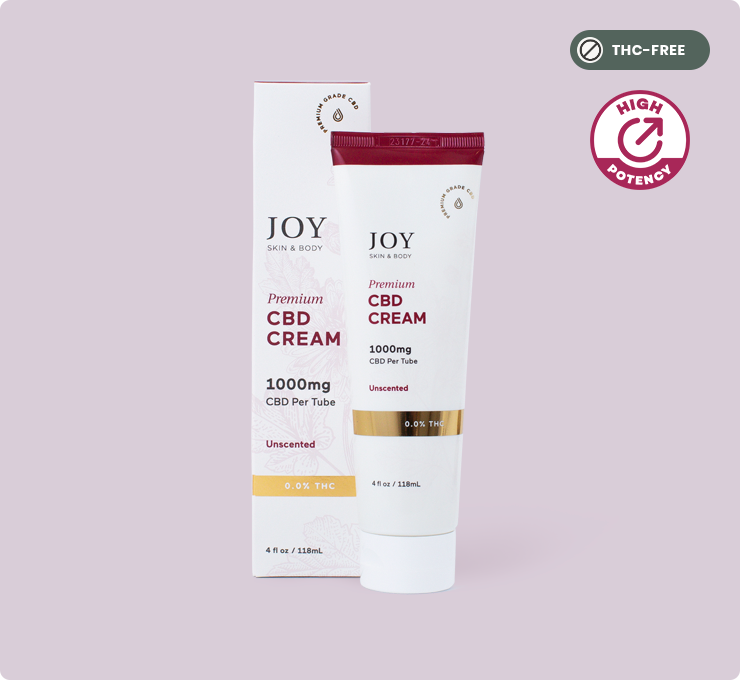
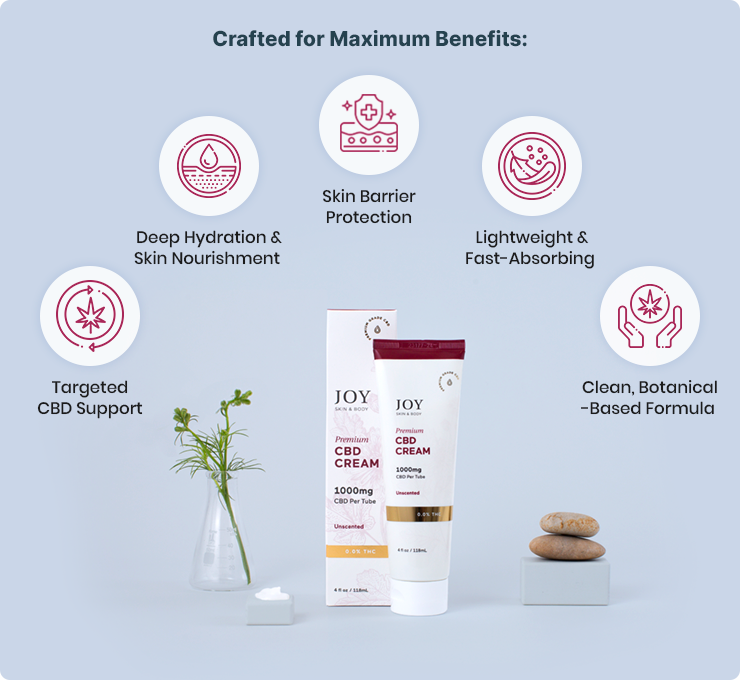
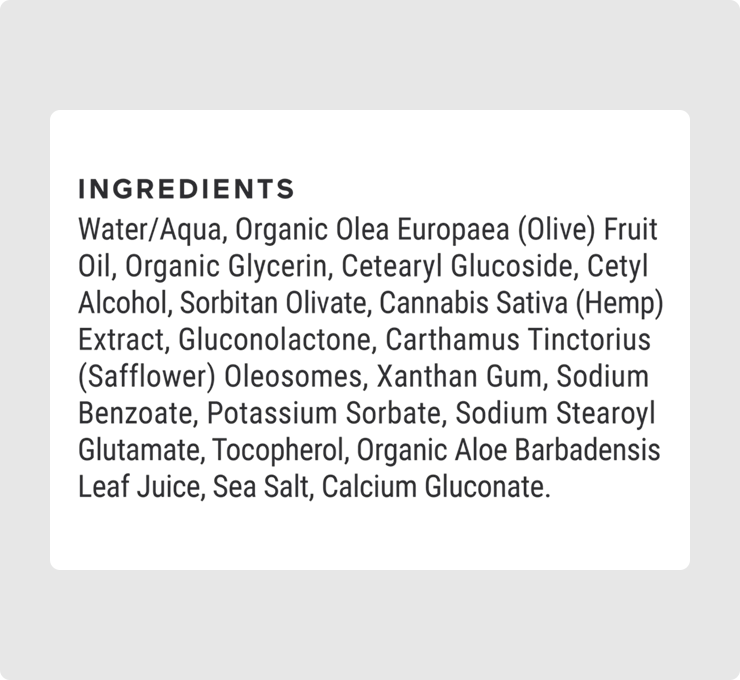
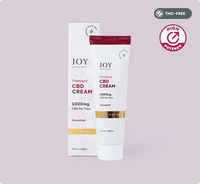

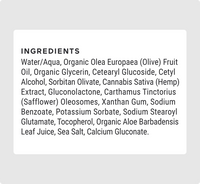





 Reviews Summary
Reviews Summary

